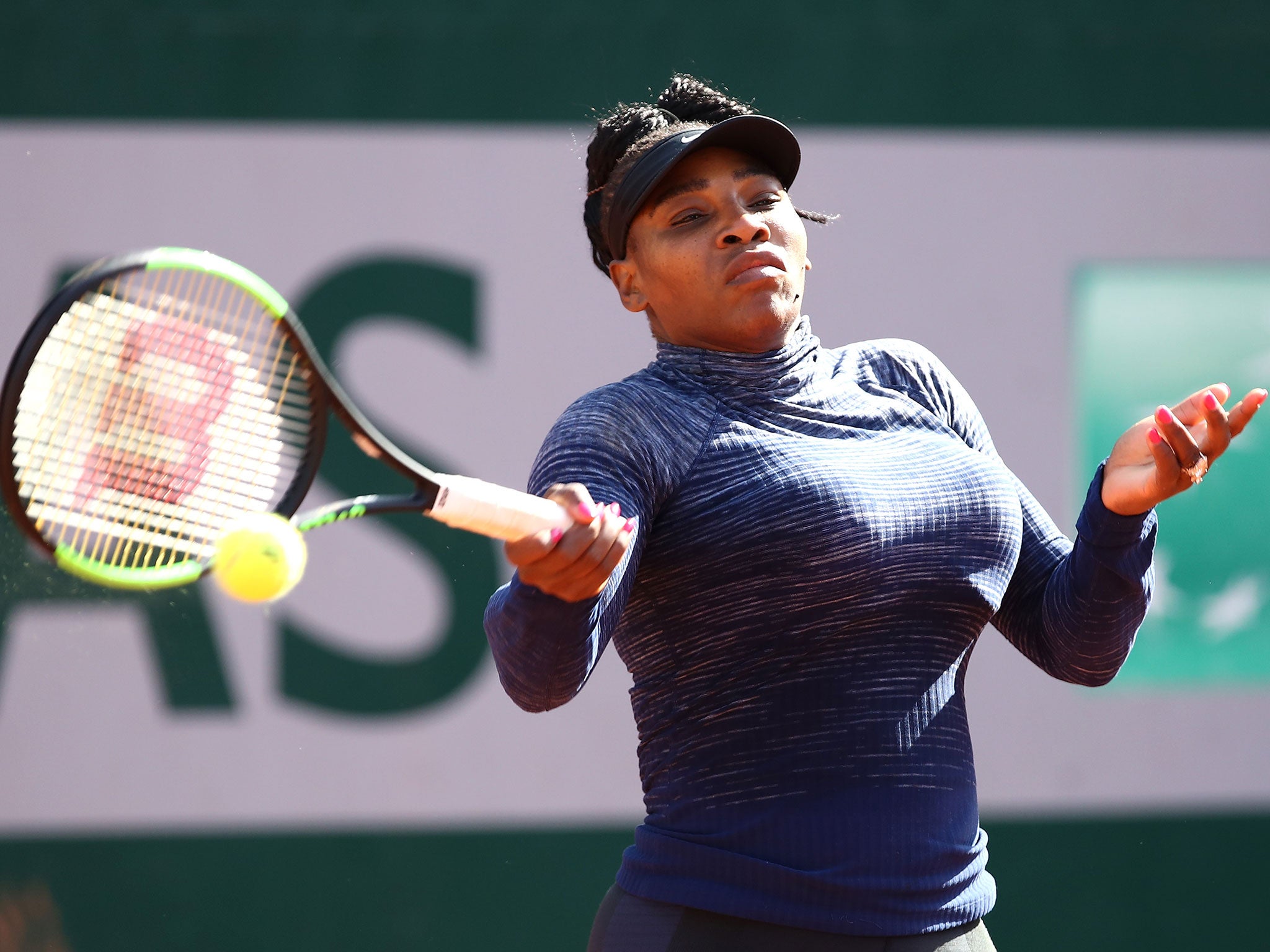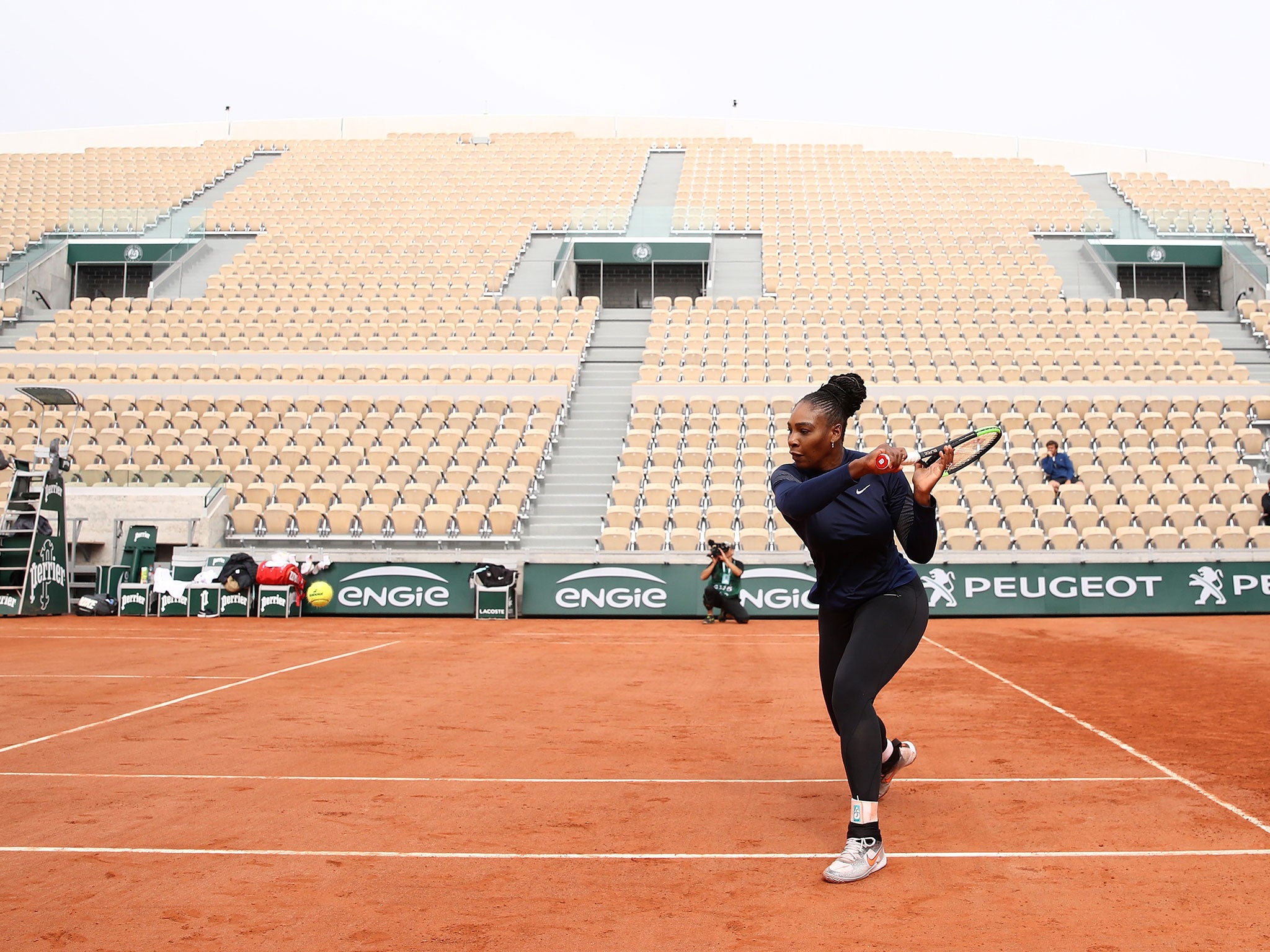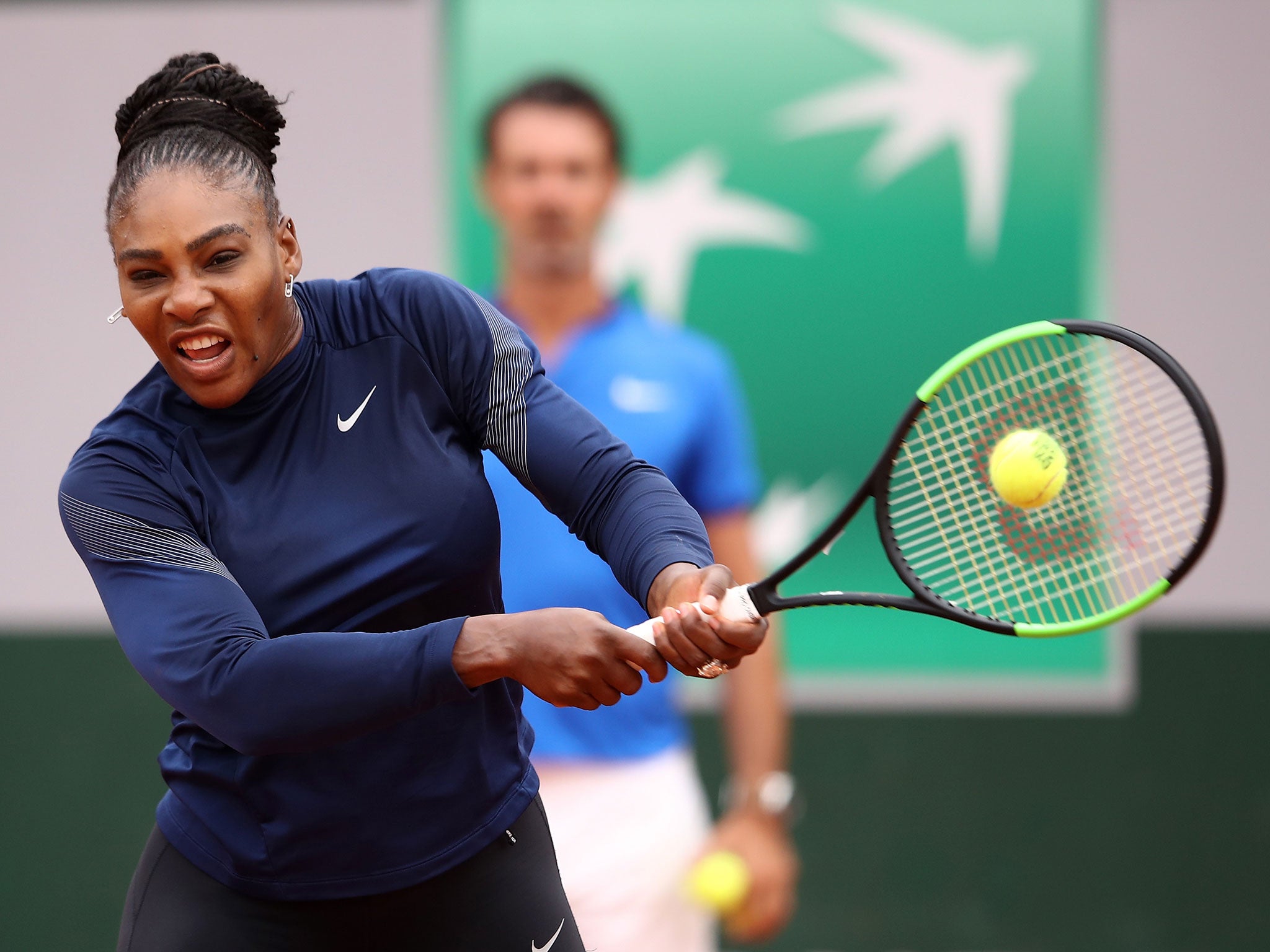French Open 2018: Should Serena Williams have been seeded in Paris?
Entry into tournaments is decided by rankings but after taking time out to have her first child the 23-time Grand Slam champion is now only No 453 in the world

Your support helps us to tell the story
From reproductive rights to climate change to Big Tech, The Independent is on the ground when the story is developing. Whether it's investigating the financials of Elon Musk's pro-Trump PAC or producing our latest documentary, 'The A Word', which shines a light on the American women fighting for reproductive rights, we know how important it is to parse out the facts from the messaging.
At such a critical moment in US history, we need reporters on the ground. Your donation allows us to keep sending journalists to speak to both sides of the story.
The Independent is trusted by Americans across the entire political spectrum. And unlike many other quality news outlets, we choose not to lock Americans out of our reporting and analysis with paywalls. We believe quality journalism should be available to everyone, paid for by those who can afford it.
Your support makes all the difference.Of all the talking points ahead of this French Open, there is probably none greater than the question of whether Serena Williams should have been seeded. Even Ivanka Trump, the daughter of the US President, weighed in this week, claiming that the 23-times Grand Slam singles champion’s non-seeding was “ridiculous” and that “no person should ever be penalised professionally for having a child”.
The reality, however, is not as simple as that. While there are plenty of people in tennis who think that Williams should indeed be seeded here, the Women’s Tennis Association, which represents the players, has historically backed the principle that tournament seedings should be based on the world rankings.
The only tournament in the calendar which does not automatically adopt the women’s rankings positions for their seedings is Wimbledon, which reserves the right to move players up or down its seeding list but does so only occasionally.

The world rankings are based on a rolling total of points earned over the last 12 months. For example, at the end of the French Open, which starts here on Sunday, every player’s ranking points earned at the tournament 12 months ago will be replaced by what they have earned this year. Williams, having played only four matches in the last 17 months after she took time off to have a baby, is currently ranked No 453.
Entry into tournaments is decided by world rankings. For example the women ranked in the world’s top 108 earned automatic entry into the field here. However, under WTA rules a player who is out for a lengthy period because of injury, illness or maternity can use a “protected” world ranking, based on their position before they were absent from competition, for up to three years. However, a player cannot be seeded on the basis of a protected ranking.
“The rule is currently under further review as part of our 2019 rules process,” the WTA said in a statement. “We remain committed to evolving with the needs of our players and are very supportive of those players returning from maternity leave to the tour.”
The four Grand Slam tournaments, however, are not run by the WTA and have the right to make their own rules on seedings. The Australian, French and US Opens do not choose to take up the option of not following the rankings.
Williams, significantly, did not ask to be seeded here. The former world No 1 will be well aware that the general consensus among players is that seedings should be based on current form, particularly as the rules on protected rankings do at least mean that long-term absentees can still play in tournaments.

While many of the top players appear reluctant to say that Williams should not be seeded, Petra Kvitova said she would be against any special rules for returning mothers, on the basis that any player who has been out of competition for such a long time is unlikely to find top form immediately. Kvitova herself missed the first five months of last year after suffering terrible hand injuries in a knife attack.
“I know from my perspective that when I came back I didn't really feel like a player who is top 20,” Kvitova said. “I was seeded, but that was because of the points which I earned in the end of the year before, so it was a little bit of a different situation.”
Some other players, nevertheless, are sympathetic to the idea of changing the rules. Maria Sharapova said she would be in favour of a change.
“I think it's such an incredible effort for a woman physically and emotionally to come back on tour after having a child,” Sharapova said. “I think it’s just another whole dimension to the travel, to the experiences, to the emotions, to the physicality of every single day.
“Tennis is such a selfish sport. But I think when there’s a child in your life, you lose a little bit of that because there’s something that’s so much more important.”
Johanna Konta said it was important to find the right balance. “I think it’s important to remember that there were mothers previously, such as Kim Clijsters, who came back and who weren’t seeded,” the Briton said. “I think it’s just important to find a good balance of rewarding the current players who have earned their right to be a seed and also supporting returning mothers.”

Clijsters is one of only three mothers who have won Grand Slam singles titles in the open era. Margaret Court won the Australian, French and US Opens in 1973, Evonne Cawley won Wimbledon in 1980 and Clijsters won the US Open in 2009.
Williams last played in a Grand Slam tournament at the 2017 Australian Open, which she won when eight weeks’ pregnant. Having initially hoped to return to competition in Australia this year, the 36-year-old American eventually came back in March at Indian Wells, where she lost in the third round to her sister, Venus. The only other tournament she has played was Miami, where she fell at the first hurdle to Naomi Osaka.
Although Williams has been working hard on regaining her fitness, she pulled out of this month’s tournaments in Madrid and Rome because she was not ready. Her first-round match here against the world No 70, the Czech Republic’s Kristyna Pliskova, will be her first competitive outing for more than two months.
John McEnroe, nevertheless, insists it is not beyond the realms of possibility that Williams will win the title here.
“I think Serena should be seeded,” said McEnroe, who will be commentating for Eurosport. “No one can deny that she is one of the most dangerous players in the draw and so to me, with her history, I think she should definitely have been seeded.
“I don’t know exactly what she should have been seeded, but I still think she should be seeded as one of the top 10 players. If she’s got herself back into the condition that she needs to be in, who knows what she could do? She could win the whole thing.”
He added: “At times I think the tournament hurts itself by not making that type of change. I think it doesn’t make any sense to me. Even though we know that Serena has not played much tennis, it seems sort of crazy to think that she’s not seeded."
Join our commenting forum
Join thought-provoking conversations, follow other Independent readers and see their replies
Comments